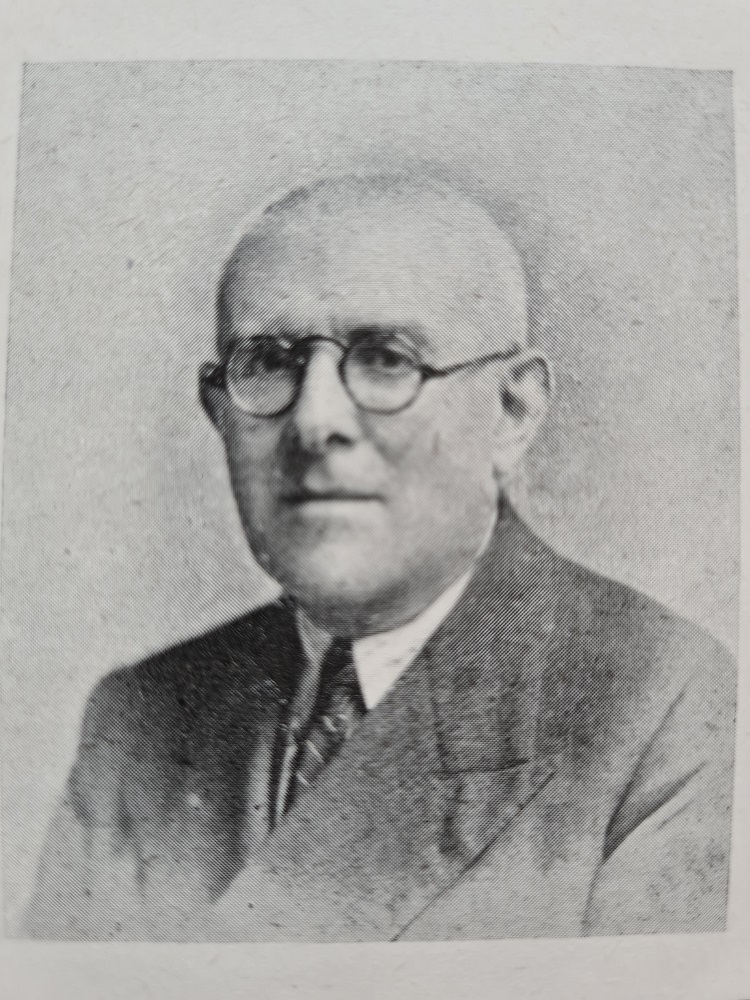Biography of Ludovico Limentani
Ludovico Limentani was born in Ferrara on 18 August 1884 to a Jewish family mainly devoted to studies and teaching. After some years of private education, he completed his secondary school studies under the guidance of Alessandro Groppali, who introduced him to philosophy.
From 1901 to 1906, he attended the University of Padua, where he graduated in philosophy and philology. In Padua, he was lectured by Giovanni Marchesini and Roberto Ardigò and got to know other scholars, such as Giovanni Vailati, Rodolfo Mondolfo and Alessandro Levi, who would then become a very close friend. Supported by vast personal interests and an avid reader, starting out from the positivism that dominated at the times he soon developed his own original thought, focussed on the world of man and social action.
From 1908 to 1920, he taught in secondary schools in various cities across Italy and was appointed professor of moral philosophy and pedagogy at the University of Messina; from 1916 to 1919, he served as an Artillery Official. In 1920, he was awarded a position lecturing at the University of Messina, only to move to Florence a year later, teaching at the Royal Secondary School and then, in 1924, lecturing at the University. He stayed in Florence as full professor of moral philosophy first and then theoretical and moral philosophy until 16 October 1938, when he was suspended from teaching because he was a Jew.
Resigned to having to continue his studies away from friends and students, he took a dignified stance and moved to Dolo, where his wife, Adelina (Adele) Iachia, Musatti on her mother’s side, owned a country home where the couple usually spent their holidays. He also took his valuable library there, the result of years of searches on the market and exchanges with other scholars. In 1939, naming his wife Adelina as his sole heir, in a letter addressed to her, he expressed his wishes that his library, if not sold, should be donated to a public entity for preservation. In actual fact, the library was then purchased in the aftermath of the war by the University of Trieste, where it can today be found at the Library of Philosophy, Languages and Literature. This is what Ludovico Limentani wrote to his wife:
You know that my book collecting has always been driven by the desire to benefit Italian culture: this desire has been heightened in me by recent experience, in the form of the pitiful evidence seen, of Italian high civilisation, spontaneously alien to all forms of persecution and, moreover, by the firm belief in the perennial nature of those ideal values that are most effectively preserved in the free work of scholars.
Ludovico Limentani died somewhat unexpectedly on 07 July 1940, following an operation. He had no children but he did have several nephews and nieces, including Eugenio Curiel, born in Trieste from his sister, Lucia.
Honestly and instinctively drawn to teaching, throughout his life his students recognised this; the many must include Eugenio Garin, with whom he enjoyed a lasting, almost paternal relationship; Garin exchanged frequent letters with him during the Dolo period, succeeded him in teaching in Florence and would always remember him as his illustrious master.
Ludovico Limentani’s extensive philosophical research first focussed on the analysis of social phenomena, with his 1907 study La previsione dei fatti sociali; he then moved onto moral investigation, with his works Presupposti formali dell’indagine etica of 1913 and La morale di Giordano Bruno of 1924. He published a great deal of content and some translations under the scope of the history of modern philosophy, in particular Italian and English, and on Italian positivism. His work on the moral doctrine of Eugenio Rignano was left unfinished and unpublished.
Biographical sources
Eugenio Garin, Ludovico Limentani (1884 – 1940), Firenze, Tipografia Enrico Ariani, 1941
Roberto Sega (cur.), Un positivista eretico. Materiali per un profilo intellettuale di Ludovico Limentani, Ferrara, Liceo classico L. Ariosto, 1999
Roberto Sega, Studi su Limentani, Ferrara, Corbo, 2002
Maurizio Torrini (cur.), Ludovico Limentani a Eugenio Garin. Lettere di Ludovico, Adele Limentani e altri a Eugenio e Maria Garin, Napoli, Bibliopolis, 2007

